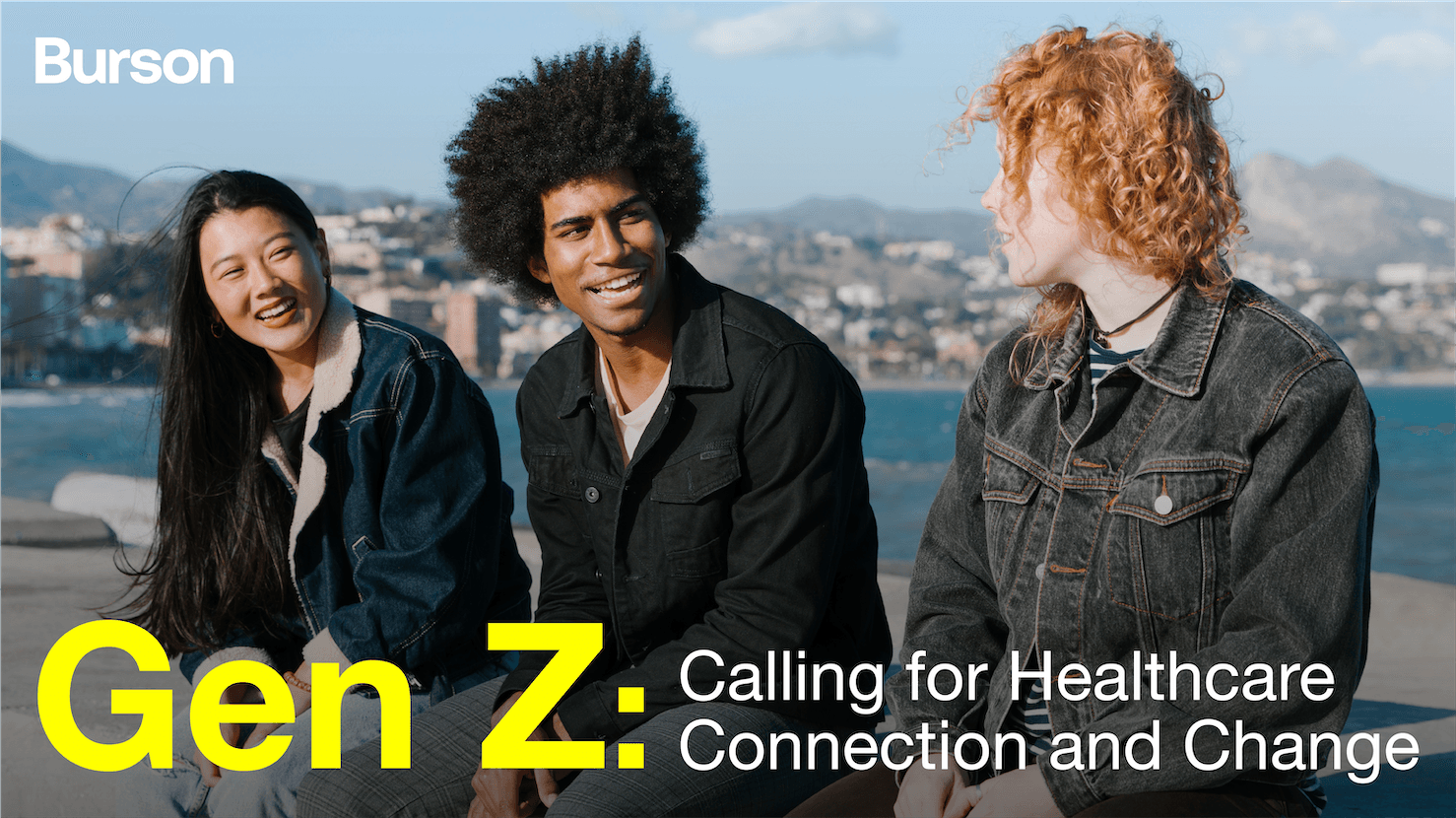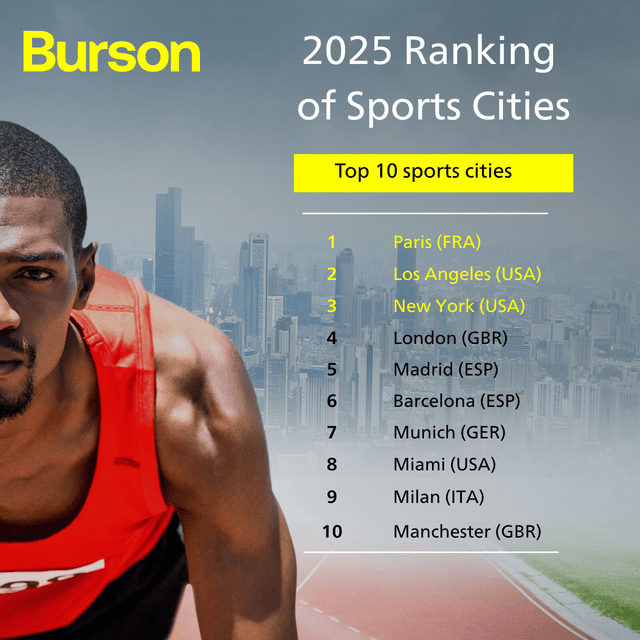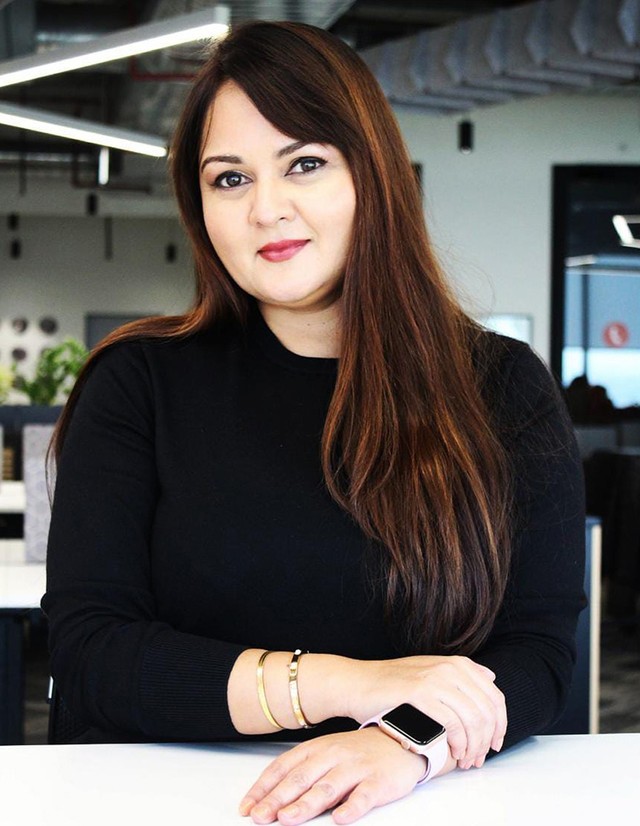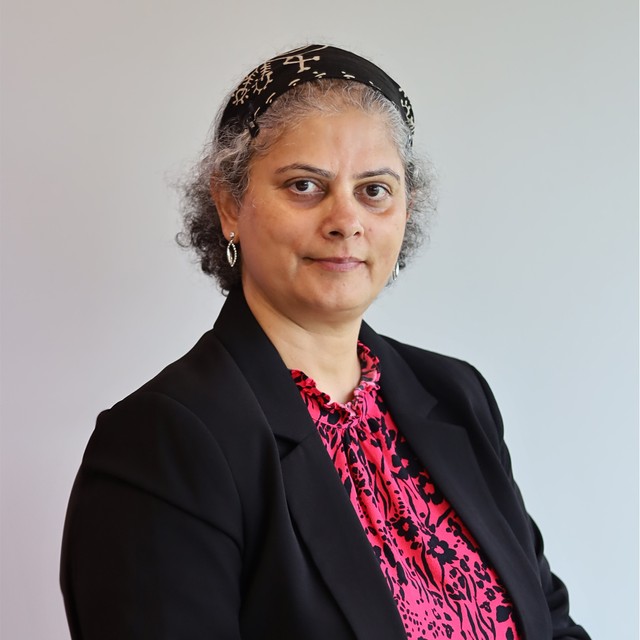NEW YORK, January 14, 2025 – Burson, the global communications leader purpose-built to create value for clients through reputation, today published a global report on Gen Z adults’ attitudes toward health, revealing a misunderstood generation eager to take charge of their healthcare.
The report, “GenZ: Calling for Healthcare Connection and Change,” is based on a global survey of 5,000 Gen Z adults (aged 18-27) across 10 countries and represents the largest global study of its kind by a communications company. The findings were complemented with data found using Decipher Health, Burson’s new cognitive artificial intelligence (AI) platform designed to assess believability and virality to optimize communications impact and stakeholder engagement across patient, advocate, healthcare provider, health decision makers and analyst communities.
There has been considerable discussion about Gen Z and their preoccupation with mental health. However, the Burson survey identified that emerging from the pandemic, this generation is equally concerned with physical (56%) and mental health (57%) and are prioritizing both mental (59%) and physical (59%) health.
“Gen Z isn't the future of healthcare — they're the present, so now is the time to create a meaningful dialogue that can empower them as newly independent health consumers,” said Brenna Terry, Global Healthcare Client Leader, Burson. “Our research confirms that there is a considerable opportunity for healthcare companies and communicators to connect with this digitally native, values-driven generation. With our new insights about Gen Z’s needs and interest in action, we can build trust, drive collaboration and shape a more satisfying healthcare experience for them.”
Additional findings reveal several global trends in Gen Z’s healthcare experience:
- Gen Z is taking control of their healthcare despite a frustrating system. They're proactive and hungry for information. In fact, 67% of Gen Z report feeling positively about taking charge of their health but say they face barriers like cost, communication gaps and misinformation. Forty-six percent (46%) of Gen Z say they find it challenging to get enough time and attention from healthcare providers.
- Gen Z values connection and in-person care. Despite being known as the digitally native generation, Gen Z is skeptical of online health information and even tele-health appointments. Eight-in-10 of Gen Z say they’ve encountered false or misleading health information online and more than 60% say prioritizing in-person visits over virtual ones is important to feeling respected by healthcare providers.
- Gen Z acknowledges a role for healthcare companies in their wellness journey. They’re ready and eager to listen to trusted sources of information with proactive and educational communications. Fifty-five percent (55%) of Gen Z say that they believe pharmaceutical companies may be able to meet these needs.
“As a member of Gen Z, the findings of this report resonated with my experience that my generation not only deserves but wants a seat at the healthcare industry’s table,” said Hayley Scandura, Account Executive, Health & Wellness, Burson, a Gen Z member and report leader. “Despite commonly held misconceptions that my generation is disengaged from their health experience, I know more time, attention and communication from both healthcare providers and companies may help alleviate the frustrations of my generation and set us up for better health earlier in our lives.”
Decipher Health: A Role in Audience Understanding and Communication
In addition to the global survey, the report includes believability findings from Decipher Health that analyzed a select set of the survey’s findings affecting Gen Z audiences. Our AI solution forecasted very high believability scores relative to the survey. For example, the traditional survey found that misinformation is pervasive in Gen Z spaces online, particularly on social media. This had a 92% believability score on Decipher Health, indicating that the simulated Gen Z population agreed with this fact or found it believable. When extended to Millennials and Gen X, Decipher Health revealed equally high scores (91% and 89% respectively), demonstrating that Gen Z has similar concerns to audiences that are regularly addressed by the healthcare industry.
“With Decipher Health, we were able to complement our traditional research methods to provide additional confidence about our Gen Z insights,” said Vicky Lewko, Global Head, Digital Health, Burson. “This new capability gives us a way to efficiently design communications that resonate with Gen Z audiences and beyond – taking the guesswork out of content and conducting always-on testing that allows us to go to market faster than ever before.”
Decipher Health, a solution created in partnership with AI company Limbik, is an offer through PR Studio in WPP Open, WPP’s intelligent marketing operating system powered by AI.
The complete report, including the full methodology and in-depth analysis, is available here.




